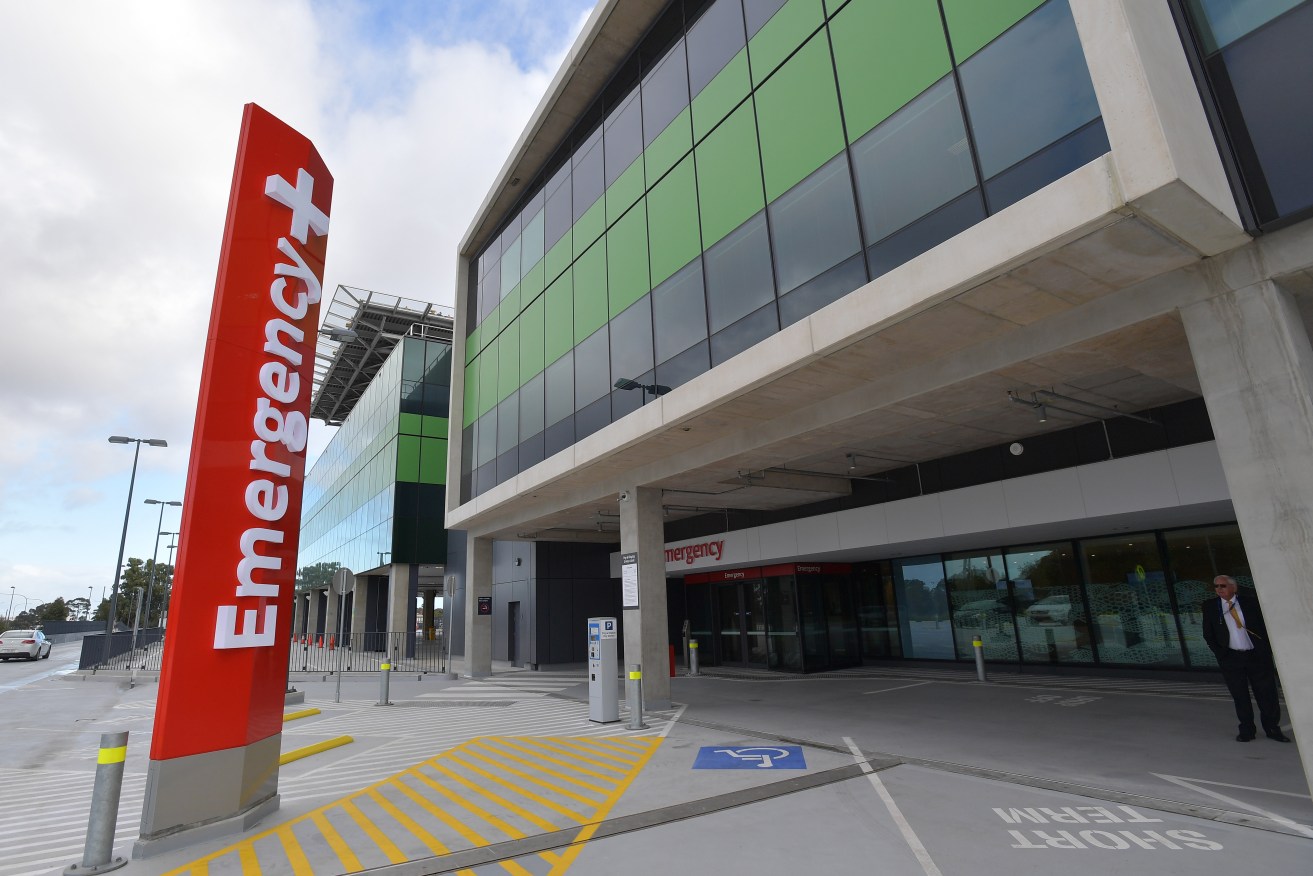SA’s mental health outcomes ‘worst in nation’: new data
South Australia’s state-run mental health services have been producing the nation’s worst clinical outcomes, discharging patients who have not improved in up to 55 per cent of cases, newly released data show.

Photo: AAP/David Mariuz
The “very concerning” figures also show the state’s hospitals have been sending mental health patients home after a “ridiculous” 11 days – the shortest stays in the country – prompting experts to warn that under-pressure psychiatrists are discharging actively unwell patients.
The key performance indicator data compiled by the Australian Institute of Health and Welfare show that 35 per cent of SA’s mental health inpatients had not experienced “significant improvement” when sent home, a result 27 per cent worse than the national average.
Patients of SA’s community mental health services were discharged without having improved in 55 per cent of cases. Both results were the worst of all states and territories.
Flinders University psychiatry department professor Sharon Lawn said the data were “very concerning”.
“It means that for many people their experience of care has not been all that useful….(and) paints a picture of just not enough support for people to get well and get on with their lives”.
Mental health nursing expert Eimear Muir-Cochrane, also from Flinders University, said while overseas inpatient stays averaged two to three weeks, SA services were “discharging people in nine to 11 days, which is just ridiculous.”
“Where you have very short admission lengths of stay it’s likely that people are being discharged without having fully recovered, and that is obviously deleterious.
“That’s because of the pressure on beds… (and) an imperative of emptying beds.”
The KPI figures, which report on the 2015-16 year, show inpatient outcomes in SA began a steady decline in 2012-13.
Over the last decade the state’s public mental health system has undergone numerous reviews and restructures, and experts have condemned psychiatric and political leaders for failing to see reforms through or develop a state mental health services plan.
National Mental Health Commissioner Ian Hickie has said that despite political efforts, successive South Australian governments and health professional groups have failed to work together to implement the recommendations of “continuous inquiries”.
“Neither has sufficiently prioritised the needs of those who use the service,” he said.
A spokeswoman for SA Health said since the 2015-16 data was collected “we have made some significant improvements to our mental health services.”
“Some of the changes we have implemented … included establishing new short stay mental health beds, new wait time targets for mental health consumers in emergency departments, and streamlining clinical governance arrangements.”
Improvements included “having mental health consumers assessed and treated in dedicated short-stay units, which has helped halve the wait time for these consumers since 2014.”
[InDaily revealed last year that the short stay unit at the Lyell McEwin Hospital had to be shut down due to concerns it wasn’t appropriate for suicidal patients.]
The government’s initiatives, designed to increase patient “flow”, followed a widely publicised 2014-15 crisis which saw mental health patients left languishing – often shackled or forcibly sedated – in SA emergency departments for days.
In the time since, doctors have welcomed reductions in ED waiting times, but mental health clinicians report “this has created problems downstream”, telling the community visitor scheme that inpatients “are often discharged before they are well enough” and are “not getting the care they require”.
InDaily can reveal a July 2017 external audit of SA’s mental health services, commissioned by the government in the wake of revelations of elder abuse at the state-run Oakden mental health facility, makes fundamental criticisms of the government’s patient flow measures and of SA’s services.
It finds while there has been “significant improvement in emergency department wait times”, the measures used have “been applied in a rather rigid way” which “tends to override consumer preference and need” and creates “considerable pressure” on wards.
It says SA’s community-based programs are “significantly diminished” and “do not appear to consistently include those components which would normally be associated with a contemporary community mental health service”.
The audit also criticises the “reports and reviews…in the past few years” and the government’s responses to their recommendations.
It says that the reports have “each … had a unique focus” yet none has considered “the overall needs of the (target) population”; that work on some recommendations “seemed to terminate before (it) was completed”; that other recommendations were “largely dismissed” in a process “disconcerting” to staff; and that there is no “overall unifying strategic direction”.
“The development of a new state plan for mental health service reform should be informed by a contemporary recovery-oriented approach with a strong focus on the development of community-based alternatives to inpatient care,” it recommends.
An SA Health insider told InDaily: “I think that we have this continual problem in South Australia of administrations not understanding the (mental health) agenda, other than the political agenda.”
“We have huge access issues in our public mental health system and we live in the revolving door mentality.
“Instead of investing (in hospital care), community should be the centre of care.”
Comment has been sought from the Minister for Mental Health and Substance Abuse, Peter Malinauskas.
For help talk to a medical practitioner or call the SANE Australia Helpline on 1800 187 263 or Lifeline on 13 11 14 (24 Hrs).




